Abstract
The dates of presentation of 191 cases of acute closed-angle glaucoma which presented at the Birmingham and Midland Eye Hospital between 1971 and 1974 were analysed and the seasonal incidence of acute glaucoma confirmed (P less than 0-001). These data were compared with meteorological data for air temperature, rainfall, hours of sunshine, atmospheric pressure, cloud amount, terrestrial magnetic field level, and sunspot numbers. A statistically significant direct association (P less than 0-05) was found with hours of sunshine and an inverse association (P greater than 0-05) with cloud amount. A statistically significant inverse association (P less than 0-05) was found with sunspot count, and this assumed high significance (P less than 0-0005) on consideration of sunspot activity in the preceding period. The literature is reviewed and the significance of these findings discussed.
Full text
PDF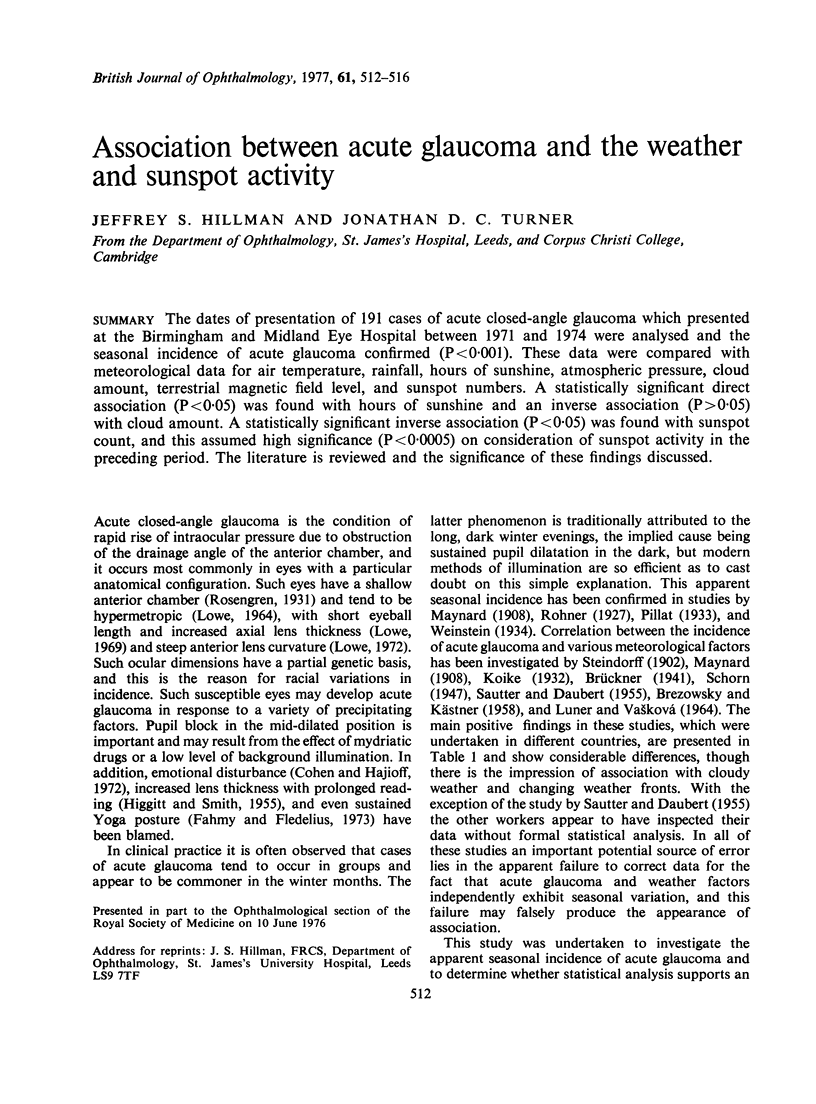
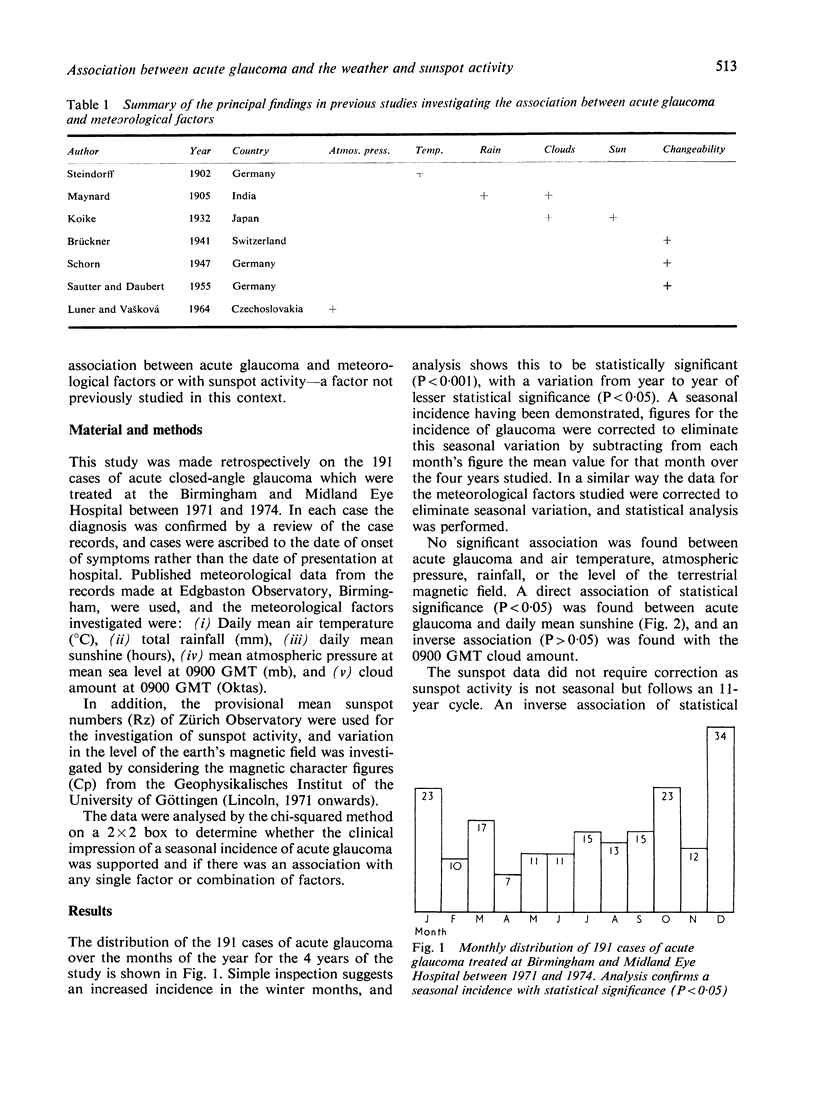
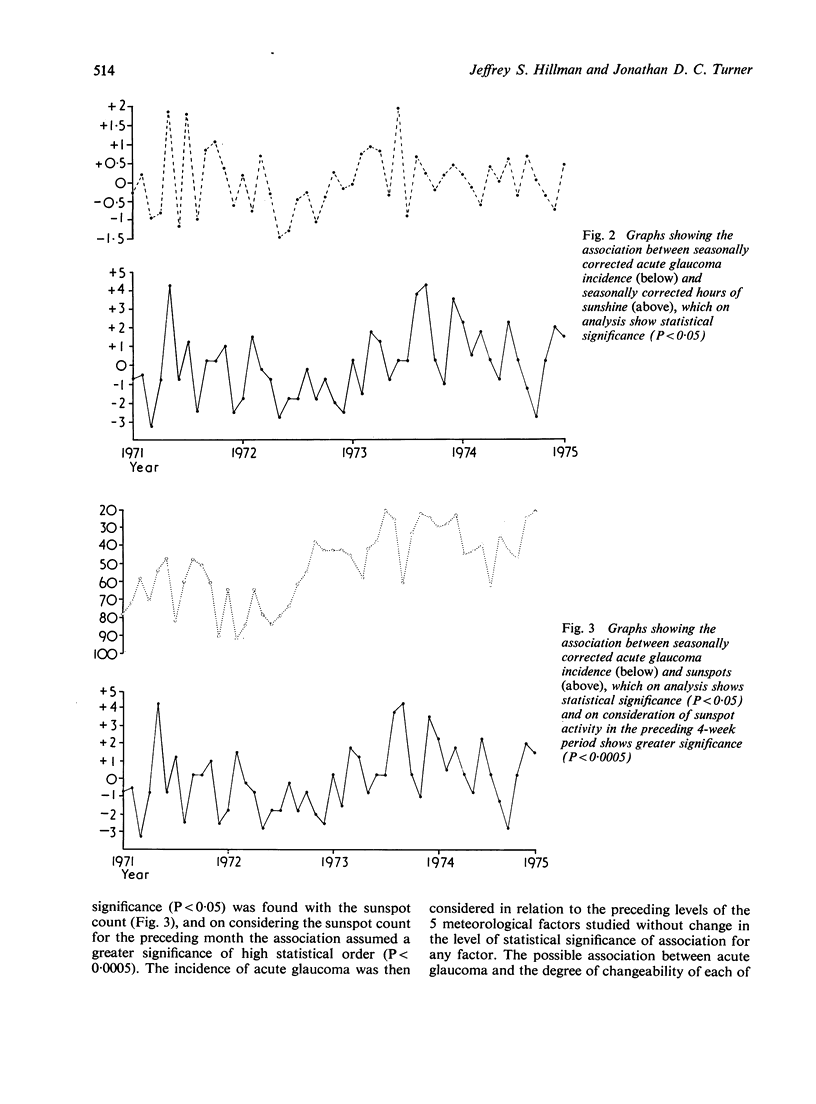
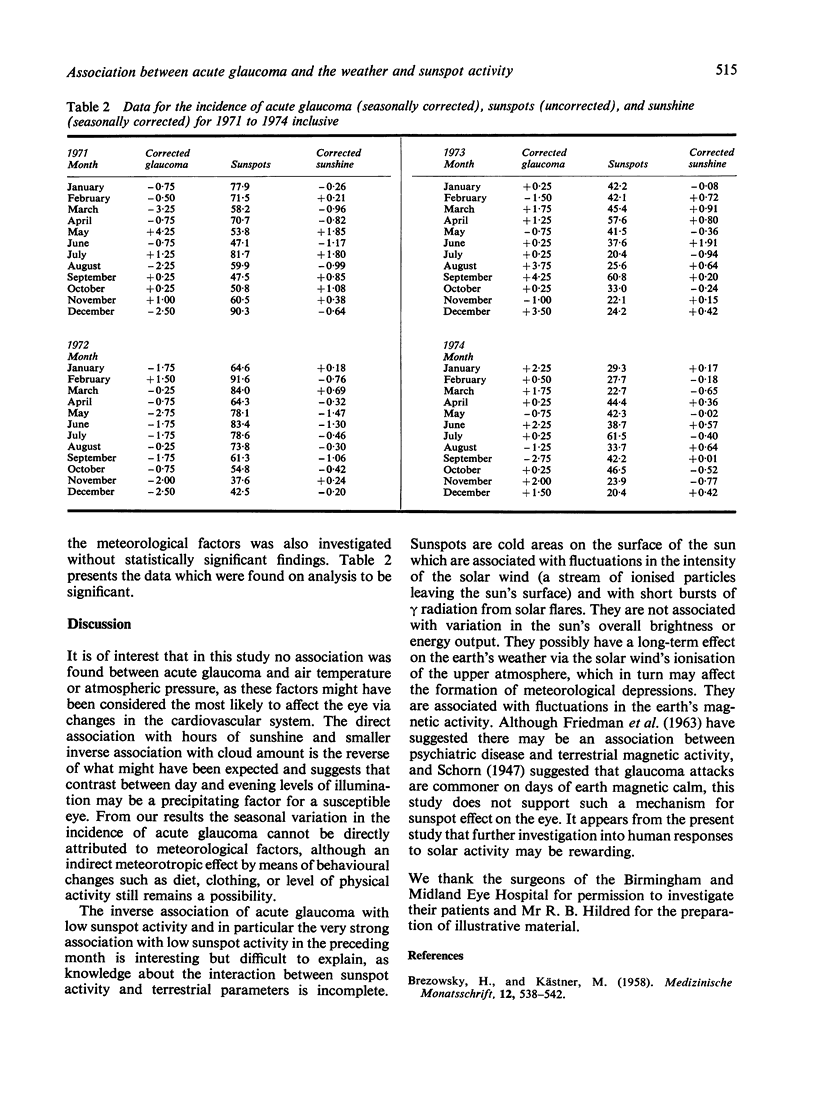
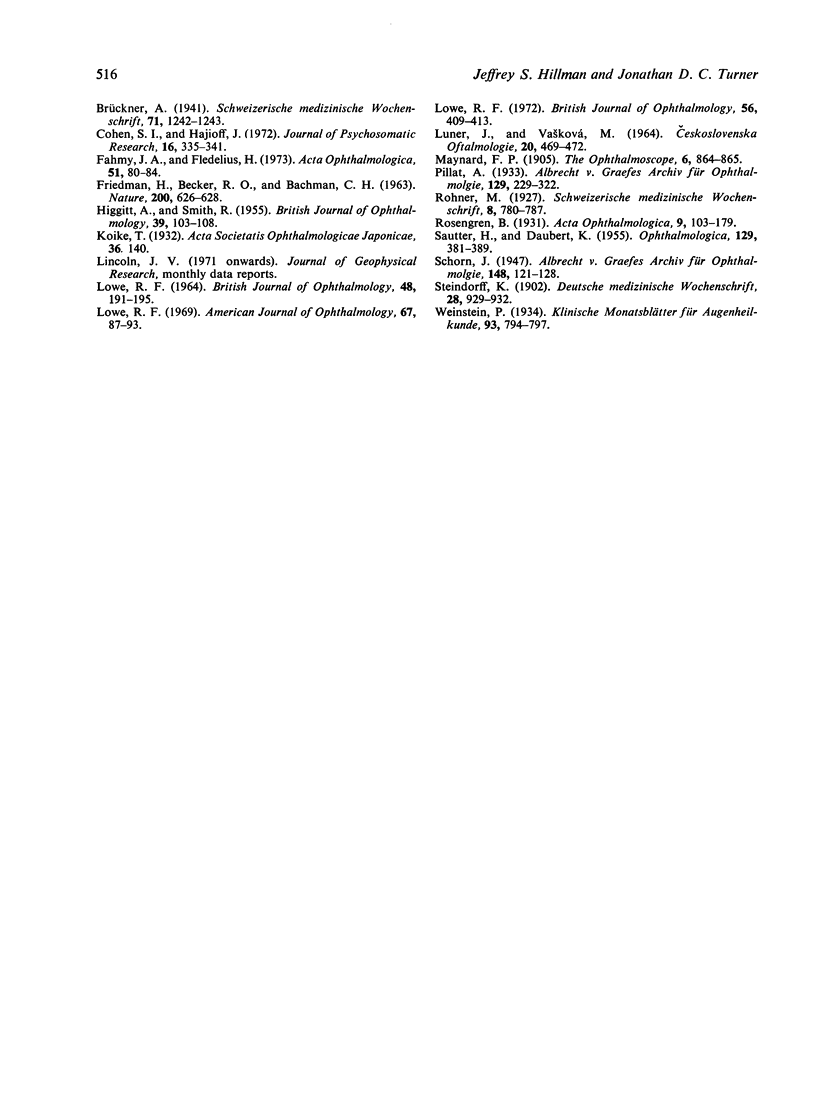
Selected References
These references are in PubMed. This may not be the complete list of references from this article.
- BREZOWSKY H., KASTNER M. Wettervorgănge als auslösender Faktor des akuten Glaukomanfalls. Med Monatsschr. 1958 Aug;12(8):538–542. [PubMed] [Google Scholar]
- Cohen S. I., Hajioff J. Life events and the onset of acute closed-angle glaucoma. J Psychosom Res. 1972 Aug;16(5):335–341. doi: 10.1016/0022-3999(72)90086-4. [DOI] [PubMed] [Google Scholar]
- FRIEDMAN H., BECKER R. O., BACHMAN C. H. GEOMAGNETIC PARAMETERS AND PSYCHIATRIC HOSPITAL ADMISSIONS. Nature. 1963 Nov 16;200:626–628. doi: 10.1038/200626a0. [DOI] [PubMed] [Google Scholar]
- Fahmy J. A., Fledelius H. Yoga-induced attacks of acute glaucoma. A case report. Acta Ophthalmol (Copenh) 1973;51(1):80–84. doi: 10.1111/j.1755-3768.1973.tb08249.x. [DOI] [PubMed] [Google Scholar]
- HIGGITT A., SMITH R. Reading test in glaucoma. Br J Ophthalmol. 1955 Feb;39(2):103–108. doi: 10.1136/bjo.39.2.103. [DOI] [PMC free article] [PubMed] [Google Scholar]
- LOWE R. F. PRIMARY ANGLE-CLOSURE GLAUCOMA. FAMILY HISTORIES AND ANTERIOR CHAMBER DEPTHS. Br J Ophthalmol. 1964 Apr;48:191–195. doi: 10.1136/bjo.48.4.191. [DOI] [PMC free article] [PubMed] [Google Scholar]
- LUNER J., VASKOVA M. METEOROTROPN'I VLIVY A GLAUKOM. Cesk Oftalmol. 1964 Nov;20:469–472. [PubMed] [Google Scholar]
- Lowe R. F. Anterior lens curvature. Comparisons between normal eyes and those with primary angle-closure glaucoma. Br J Ophthalmol. 1972 May;56(5):409–413. doi: 10.1136/bjo.56.5.409. [DOI] [PMC free article] [PubMed] [Google Scholar]
- Lowe R. F. Causes of shallow anterior chamber in primary angle-closure glaucoma. Ultrasonic biometry of normal and angle-closure glaucoma eyes. Am J Ophthalmol. 1969 Jan;67(1):87–93. doi: 10.1016/0002-9394(69)90012-9. [DOI] [PubMed] [Google Scholar]
- SAUTTER H., DAUBERT K. Meteorologische Studie über das akute Glaukom. Ophthalmologica. 1955 Jun;129(6):381–389. doi: 10.1159/000302579. [DOI] [PubMed] [Google Scholar]


